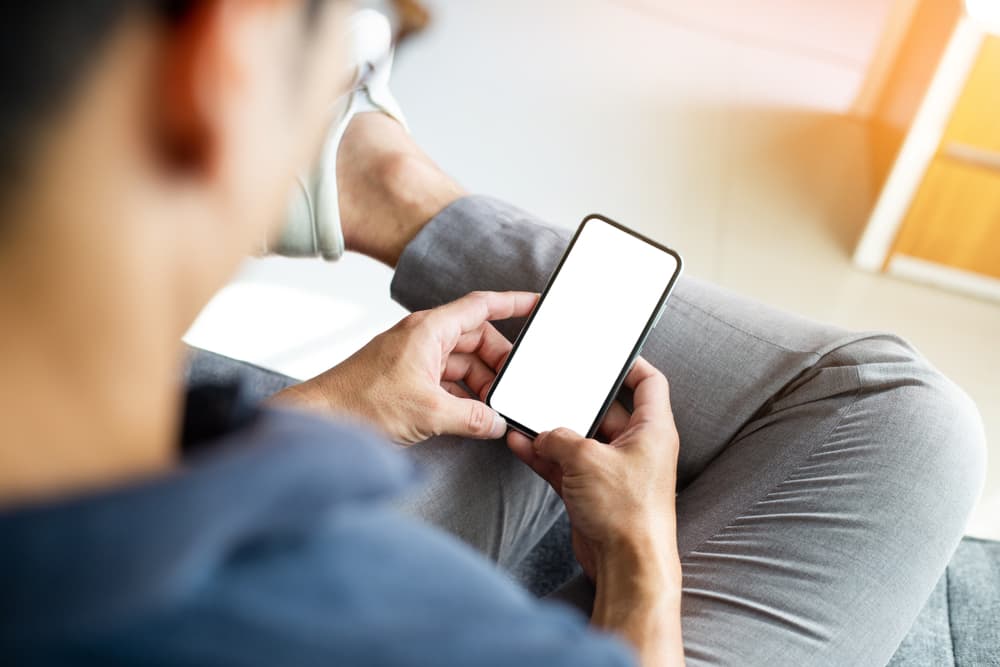
Being in isolation and limited physical interaction, we are heavily dependent on our devices for social interaction. It can be easy to lose track of our screen time. Some of us are so connected we can’t go five minutes without. However, when our partners prioritize and pay more attention to their mobile device, they are participating in phubbing. Being in a relationship with someone who phubs regularly can create frustration and tension for all parties involved. At our core, humans desire attachments, connections, and social interactions, so when your main source is choosing their cellphones over much needed time to connect, your relationship may weaken. One-on-one time spent with our partners is an important time to further develop and nurture the relationship; having a cell phone present during this can feel as if they value your relationship much less compared to the device. Think about it, how can they truly listen and respond to you if their eyes are on the device?
It’s OKAY to not be okay with it
You shouldn’t feel like you’re being selfish for needing your partners full attention during your time together. As much as we humans like to believe that we are exceptional multi-taskers, the truth is that no one is able to pay full attention to more than one thing at a time. If you set aside some time specifically for you and your partner, it is okay to not be okay with them prioritizing whatever is happening on the screen. We need to know that our partners care about us, and this may mean having their undivided attention if your love language speaks on quality time.
How to Solve Phubbing?
Important vs. Not so Important: Sometimes it’s necessary for us to have our phones on us if we are expecting an important call, message, or notification. Together, you and your partner can decide when your mobile devices are allowed to impose on your time together. For instance, being on-call for work or anticipating an emergency are occurrences where you need your phone close. However, phubbing to stay updated on your friends Instagram stories is probably not applicable here.
Make it Situational: Is there one place that seems more appropriate to be on a cellphone than another? Maybe you’re both in the same space, but you aren’t investing in time specifically for you two; this is an example of when being on your cell phone is okay. However, being glued to your phone at the dinner table when your partner is trying to speak to you may not be as acceptable.
Challenge Yourselves: Can you or your partner think of any situation where you can leave your phone behind, or when it may be acceptable to turn it off? Try having fun with this. Between you and your partner, see who can last the longest not touching their phone. The first to touch their phone during a specific time pays the price. It’s up to you and your partner to decide what that price is.
Place Chargers in Public Areas of the Home: This keeps cell phones out of the relaxed and intimate times of day/areas of the home such as in the morning or at night.
Talk About it: Sometimes, all you need to do is voice your feelings. If you’re struggling to accept the amount of phubbing going on in your relationship, communication about how deeply it upsets you may be enough to initiate change. Maybe your partner doesn’t realize what they’re doing; instead of getting upset and setting some hard rules, try openly talking about your feelings.
Be Patient: Your partner’s phubbing behaviour is habitual and it will take time for them to break this habit. Give them some gentle (yes gentle) reminders to reconnect with you and disconnect from their phone.
Discuss the reasons for Phubbing: Sometimes screen time is used to avoid interactions that typically lead to disagreements. While this may feel like avoidance and rejection, your partner is trying to keep the peace between you. Discuss the issues in your relationship and be open to listening to your partners struggles in the relationship.
If you are struggling with connection in your relationship, or want to strengthen your bond, we can support you with creating deeper connections and communication within your relationship. Please contact the Vaughan Relationship Centre to inquire.
